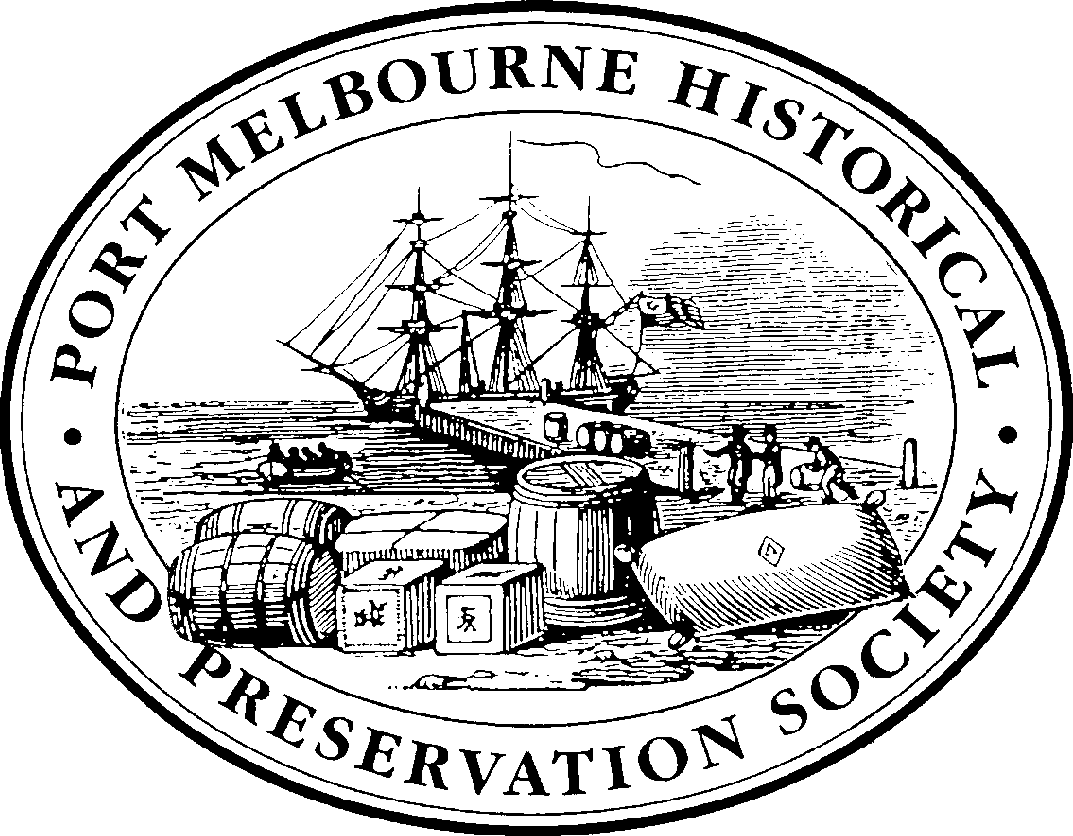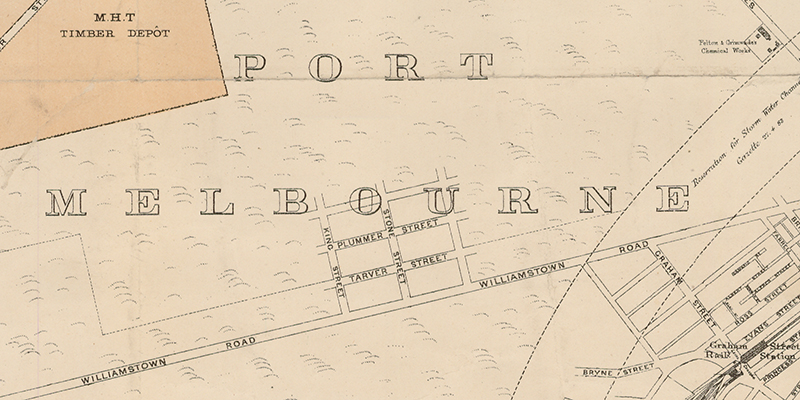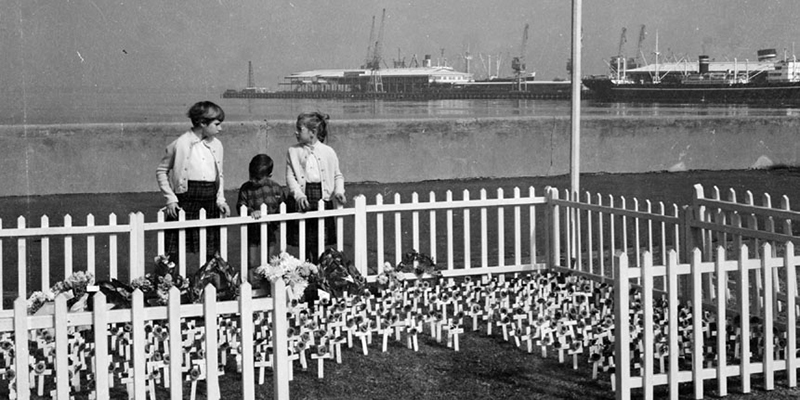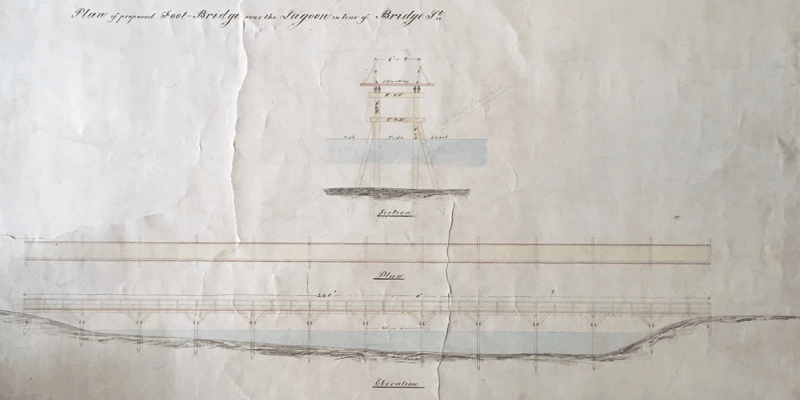Family Memories of Jennie Baines
Lyn McLeavy shares her aunts’ recollections of Jennie Baines, and of her grandmother Mary McLeavy

Millie Jennie Baines was only that high (5’1”) The biggest thing about Jennie was her mouth. Didn’t she give us a bit of curry.
Alice In the depression she went around with women from the Labor Party getting food and stuff for the people. She was very active, always on the go.
Millie What about when Mum (Mary McLeavy) took me up to Parliament House? They all went up there with their umbrellas. Mrs Gaylor, Nurse Morton, Toby Phillips, Jennie Baines – suffragists they were. I was only about eight, and as I remember I wore my buttoned boots. I was outside. Mum said at a given signal they all stood up, in the balcony, brandished their umbrellas and had their piece to say: ‘We are the wives of the stevedores of Port Phillip, and our children are starving while the scabs are scabbing. Mr Hogan has allowed the workers to be shot down. Shame on the Labor government!’ (Politicians responded with, ‘Those women have got a lot more cheek than brains.’) They weren’t in there for that long. Someone got hold of the coppers. The umbrellas were for protection. We all dived down Collins Street, chased the tram and fell in. They were pleased with themselves. They thought they would have been stopped before. When we got back to Port, old Dickie Green, who was a wharfie, was outside Radcliffe’s, opposite the Town Hall. Dickie said to Mum, ‘Have a look at the Herald cart, WOMEN THROWN OUT OF PARLIAMENT HOUSE. When will these faggots ever learn?’ Mum said, ‘I don’t know Dick’, and she squeezed my hand so bloody hard, to say, say nothing! She didn’t want me father to know either, because men were the rulers – or thought they were. But it all came out later on.
Millie When Jennie would get down Bay Street (on her soapbox), you’d swear there was a riot on.
Alice She used to come into the Stevedores’ Club when we lived there. My brother had a rosella that used to talk. Every time everybody saw Jennie Baines come they’d all run, because she never stopped talking. The bird got that used to people saying ‘here comes Jennie Baines’ that the rosella picked it up and anyone that came in the bird would say ‘Here comes Jennie Baines.’
Millie When we shifted into the Stevedore’s Club, Jennie, Mum and Toby and them got permission from the stevedores to open the big hall to get everybody off the streets. A lot of people learnt to dance from there. Mary and Jennie used to get around the shoe factories, try and get rejects or seconds and take them to schools or Port Town Hall to hand out. Susso shoes were clodhoppers, mostly boys’ shoes. I painted mine red – with a small tin of paint off Mr Baines – and put big white ribbons in them – they looked ghastly! Mary was politics – her and Jennie Baines. They worked for the Labor Party, supported Ted Holloway*, and Prime Minister Scullin – labour people that used to be at all the Unemployed Workers’ Movement meetings.
Maggie Mum and Jennie used to go up to Parliament House at nine o’clock in the morning to catch up with the parliamentarians to ask them what they were going to do about helping them with their families. Jennie and her husband George had a boot shop and a tobacconist, right next door to the Port Melbourne police station, and Mum used to say, ‘Mrs. Baines are you going to come? ’She’d say, ‘Well how can I go, I’ve got me shop and the house?’ ‘Well, Maggie will do that.’ I was only eleven or twelve but I was like a woman, I had to be. Jennie and George were very smart and nice people. They had a grandson, George; he lived there and had a good job. I used to scrub right through the house and clean it, and Mr Baines would be hitting boots all day and someone would come in for cigarettes – I’d have to go on that side of the shop, in the same building – I used to do that in between cleaning the house. When it come Friday she’d give me two bob for all that. I’d go about two or three times a week so Mrs Baines could get out and Saturday mornings a lot too. She’d be in there with Mum, fighting for endowment and things. Mrs Baines had upstairs and downstairs, they were big places, I used to scrub and it was hard yakka in those days but it didn’t worry me, I was only young. I didn’t want to go to school any more, cause I wasn’t getting very far because Mum was keeping me home all the time doing her housework. I’d be away for weeks on end and wouldn’t know a thing they were talking about and it got me very confused, made me very inferior. Jennie always had a lot of admiration for me. If she was ever in need she’d send around and ask me mother could I come around and do for her, probably while she was in magistrating or something. I knew she was powerful. She had all these donations in her house and she’d take them round to people. One room was full, there was tins of milk. Mum used to go round with her sometimes; if they knew anyone was in a desperate situation they’d go straight there. Women never went over with men in those days. If you were a woman, you had to know your place. A man was somebody; a woman was just the scullery maid.
Alice She was a very quiet person, my mother, she never used to mix. When the depression was on, that was when she got involved, somebody got her out – it might have been Jennie Baines. She had more front than Myers at the finish – she’d go anywhere and do anything. Pop didn’t care, he used to go crook about it – he always reckoned she’d finish up in jail. She didn’t take no notice.
* Tom Holloway was originally a bootmaker. As President of Victorian Trades Hall Council he took conservative Prime Minister Bruce’s Flinders seat in 1929 when Bruce tried to abolish the arbitration system.



